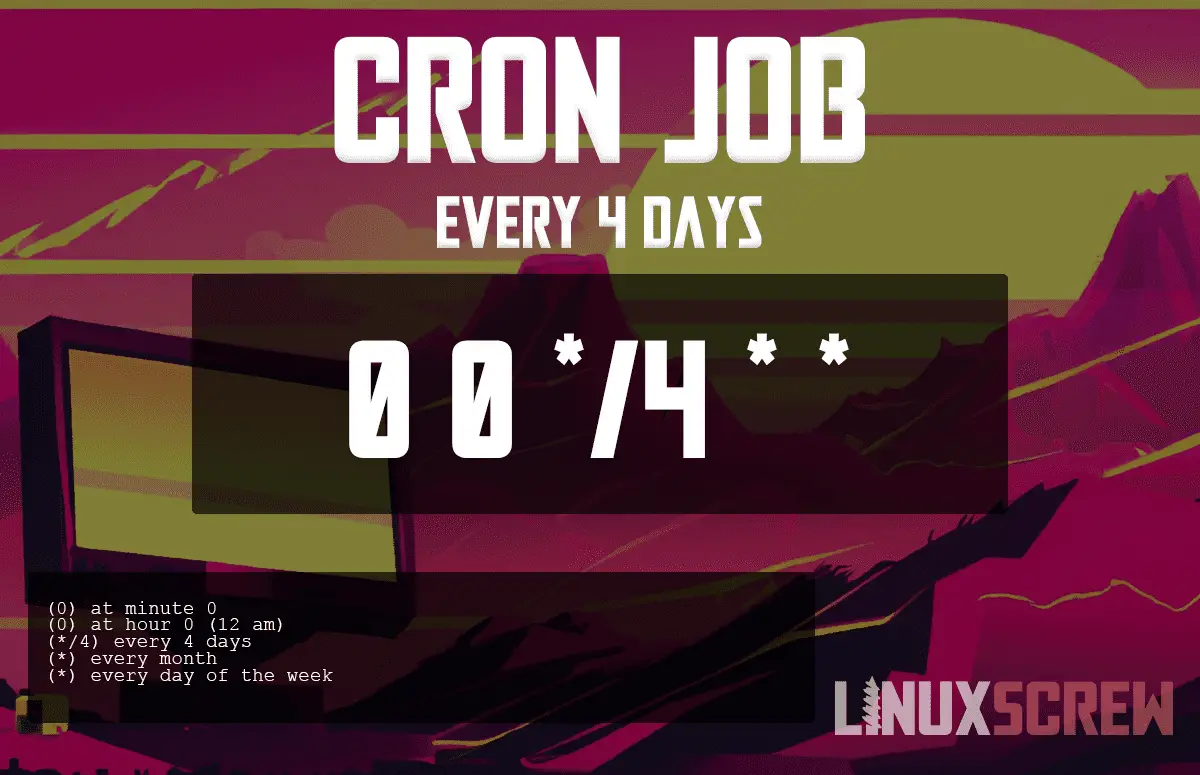This page will help you quickly and easily set up a cron job to run every 4 days.
The Cron Job/Crontab
To have your task run at this frequency, use the following cron:
0 0 */4 * *
This cron command translates to the following (in Human-Readable format):
“Every 4 days.”
What is a Cron Job & Crontab?
A cron job is a scheduled task that is typically executed by the operating system on a regular basis. Cron jobs are often used to perform maintenance or administrative tasks, such as backing up data or updating software.
To create or edit a cron job, users must first open the crontab file using a text editor. The crontab file contains instructions for the cron daemon, which is the program that actually executes the commands specified in the file. Each line in the crontab file represents a single task or command.
Cron Fields
Every cron job uses five fields. Here is an explanation of what each field does in this cron, which runs “every 4 days“:
FUN FACT: If a cron job is not properly configured, it might never execute – so make sure you double-check your settings before setting one up!.
Use Cases
You might want to set up a crontab or cron job to run every 4 days for several reasons, including:
- Checking for updates to a software package and installing them
- Running a backup of a database
- Rotating log files
Similar Cron Jobs
You might also want to run a crontab:
- every 1 day
- every 7 days
- every 6 days
- every 2 days
- every 3 days
- every 1 day at 12:30 pm
- every 8 days at 8:30 am
FUN FACT: When editing your crontab, it is important to use a text editor that supports Unix-style line endings (LF), as opposed to Windows-style line endings (CRLF)..
Wrapping Up
In this article, you learned how to set up a cron job that runs every 4 days. Please share this page with friends and colleagues if you find it useful.
If you have any questions, please don’t hesitate to comment below.
If you are looking for cron jobs that run at certain minutes, hours, days, weekdays, or months, or if you are looking for miscellaneous cron jobs, then check out our relevant sections, or visit our crontab cheat sheet for a list of hundreds of popular cron jobs.

